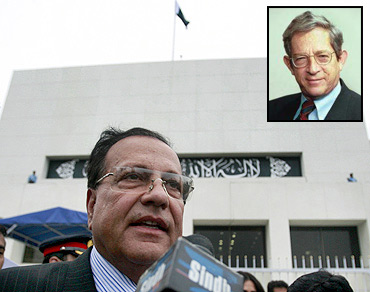
In the first few days of this year, Pakistan has witnessed one of the first political turmoil of recent times. Earlier this week, the Pakistan government was struggling to survive with its coalition partner pulling out and then one of the country's most dynamic and outspoken politicians -- Punjab Governor Salmaan Taseer -- was assassinated by one of his bodyguards.
In an interview to Council of Foreign Relations website, Stephen P Cohen, a leading expert on Pakistan, talks about the ongoing political crisis, Taseer's assassination, growing sense of insecurity in Pakistan, importance of China and more.
On falling government and Taseer's assassination:
The crisis in the Pakistan government and the Punjab governor's killing are symptoms of a deeper problem in Pakistan. There is not going to be any good news from Pakistan for some time, if ever, because the fundamentals of the state are either failing or questionable. This applies to both the idea of Pakistan, the ideology of the state, the purpose of the state, and also to the coherence of the state itself.
Pakistan has lost a lot of its "stateness," that is the qualities that make a modern government function effectively. So there's failure in Pakistan on all counts. I wouldn't predict a comprehensive failure soon but clearly that's the direction in which Pakistan is moving.
...
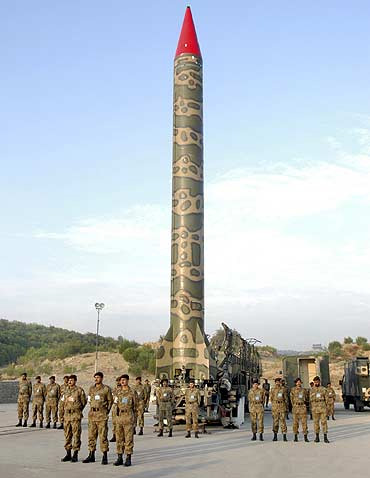
On Pakistan's possession of nuclear weapons:
All United States policies toward Pakistan are bad, and some are perhaps worse than others. The US doesn't know whether levelling with Pakistan is going to improve things or make it worse. Hopefully, America won't make any more fundamentally wrong decisions in the future, but that may not prevent Pakistan from going further down the road to disintegration.
Someone in the US state department was quoted in a WikiLeaks document that if it weren't for nuclear weapons, Pakistan would be the Congo. I would compare it to Nigeria without oil. It wouldn't be a serious state. But the nuclear weapons and the country's organised terrorist machinery do make it quite serious.

On China's influence on Pakistan:
China is Pakistan's major military supplier. Of course, it probably put the Pakistanis in touch with the North Koreans for missile technology. The Chinese have one concern in Pakistan and that is the training of Chinese militants and extremists inside of Pakistan. The Chinese have no problem with the Tiananmen Square-type of crowd control.
When the Lal Masjid was blown up in Islamabad in 2007, it came after some ten Chinese were kidnapped and the Chinese complained publicly. The Pakistanis had ignored our protests about the mosque for many years. But they moved quickly when the Chinese protested, killing many women and children in the process.
That was one of the turning points in President Pervez Musharraf's career, because that turned many militants against him. Before that time, he had either ignored or supported them, but after Lal Masjid, they became his enemy.
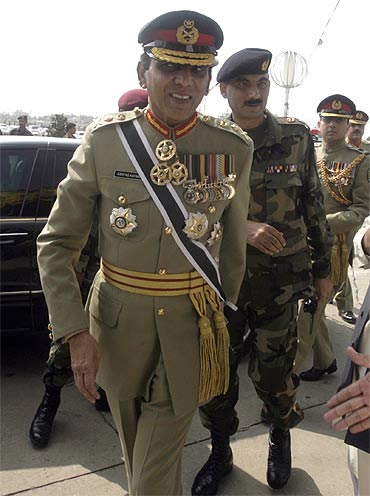
On terrorists controlling the state:
Militants -- whether you call them anti-American, anti-liberal, or anti-secular-- seem to have a veto over politics in Pakistan, but they can't govern the state. The parties control the elections but they can prevent others from governing, and they may prevent the military from governing as well.
On a military coup in Pakistan:
Pakistan Army Chief Pakistani Army Chief General Ashfaq Pervez Kayani is as smart and calculating as President Muhammad Zia-ul-Haq was. He is quite different from Musharraf not an Islamist himself, but he has certainly supported them in the past. The Pakistan military cannot govern the country. They've tried it three times in the past and each time failed. This time they would have to deal with more active militants. The liberal forces are in retreat, and I don't see the army supporting the liberal forces in Pakistan.
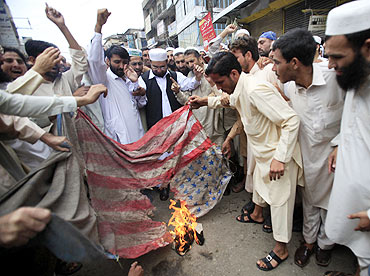
On anti-American sentiments:
Historically, the Pakistani elite have created a narrative of US-Pakistan relations which always shows America letting Pakistan down. A turning point was the Iranian revolution of 1979, which showed a lot of Pakistanis that standing up to the Americans, embarrassing the Americans, humiliating the Americans felt good.
Whether they were Sunnis or Shiites in Pakistan, it felt good. It all goes back to everyone in Pakistan concerned about American policy toward Israel and the Middle East. They seem to care more about Israel and Palestine than they do about themselves. The irony of Pakistan is that their major foreign policy obsessions are ones that they can't do anything about, including Israel and Palestine.
When the US and North Atlantic Treaty Organisation forces moved into Iraq and Afghanistan, that was seen as a direct threat to Pakistan. They feared that the Islamist states were being knocked off one after another, beginning with Iraq, and going on to Afghanistan, and winding up with Pakistan. Most of that is imagined, but many Pakistanis believe it is true.
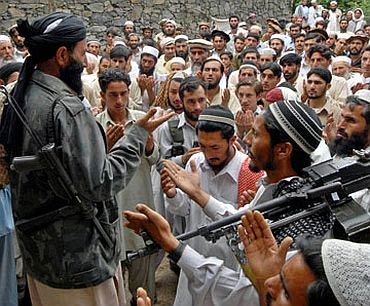
On terrorism and globalisation:
Pakistan failed to take advantage of globalisation. They use terrorism as an aspect of globalisation, which is the negative side of globalisation. Go down the list of factors, they are almost all negative. There is not one that is positive. They need outsiders for economic help. The conflict with India drains most of their budget. They can't resolve foreign policy differences with India. They have quarrels with the US over Afghanistan, although they are probably right that we don't understand the Afghanis either.
The Pakistani Taliban is a designated enemy, but the army cannot move against them. The army is worried about its integrity itself.
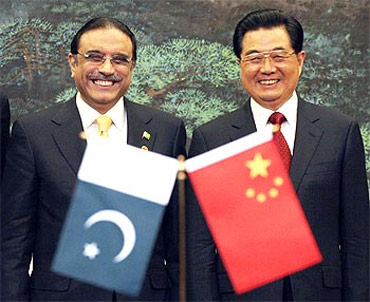
On India's fear of Pakistan:
Pakistan can't figure out how to reconcile their strategic necessity of accommodation with India. Of course, India takes a hard line on a lot of issues, not just Kashmir. India has allowed China to acquire Pakistan as a strategic asset. It is now a trilateral game between the Chinese and Indians with the Pakistanis on the Chinese side.